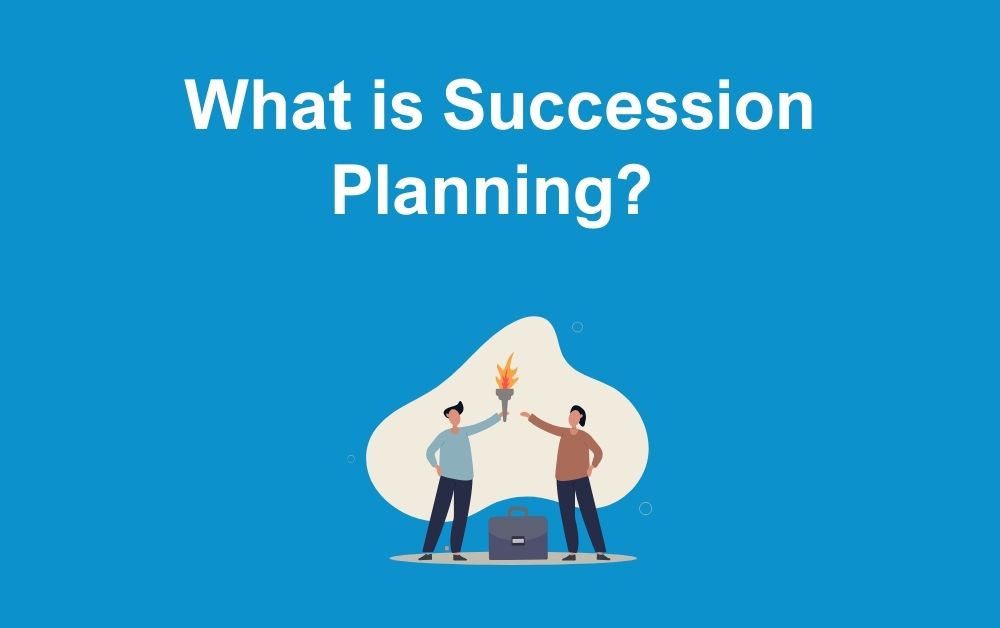Succession planning is a crucial strategy for any business looking to secure long-term success. At its core, it’s about identifying and developing future leaders within your organisation to ensure continuity in key roles. Whether it’s preparing for unexpected departures or planning for future growth, it helps businesses stay resilient and ready for change. In this blog, we’ll break down what succession planning really means, why it matters, and how it can benefit your business—no matter its size or sector.
What is succession planning?
Succession planning is the process of identifying and developing employees within your business who have the potential to step into leadership or mission-critical roles. It’s about thinking ahead, preparing for inevitable changes, and ensuring your team isn’t left scrambling when someone moves on, retires, or takes an extended absence.
This plan is not just about preparing for retirement, either. It’s about being ready for unexpected departures, promotions, or business growth that demands a shift in structure or leadership.
The Benefits of Succession Planning
1. Business Continuity: When someone leaves unexpectedly, you already have a plan in place to ensure minimal disruption. That’s peace of mind for everyone involved.
2. Staff Development and Retention: Employees are more likely to stay with a company that invests in their future. This type of planning encourages internal development and shows staff that there are opportunities to progress.
3. Knowledge Transfer: By planning ahead, you can ensure that valuable experience and insights are passed on before someone exits the business.
4. Strategic Recruitment: When you know what skills and roles you’ll need down the line, you can be more proactive and targeted in your hiring with succession planning.
5. Stronger Leadership Pipeline: With the right planning, you’re not just filling roles—you’re building a leadership team that can grow the business and take it to the next level.
Common Misconceptions
“Succession planning is only for large companies.”
Not true. In fact, smaller businesses can feel the impact of a key employee leaving even more than larger ones. Succession planning is relevant for any size of business.
“It’s only about the top roles.”
While it’s certainly important for senior leadership positions, succession planning should cover any roles that would significantly affect your business if they were left unfilled.
“We’ll cross that bridge when we come to it.”
Unfortunately, that approach can lead to rushed decisions and poor outcomes. Planning ahead allows for a smoother, more strategic transition.
How do you do identify suitable internal people?
When identifying suitable people for succession planning, start by looking beyond job titles. Focusing on the roles that are critical to your business now and in the future. Then, have open conversations with your team to understand their career goals—someone may have leadership potential they’ve never voiced.
A helpful way to assess your team is through a simple performance and potential matrix. This involves mapping where each individual currently stands in terms of how well they’re performing and their capacity to grow.
We’ve carried out this exercise with several clients recently, and the insights have been invaluable. By involving your managers and discussing each team member individually, you often uncover hidden talent and identify who’s ready to step up. It’s a simple but powerful way to strengthen your succession plan.
What do you do once you have identified potential successors?
As the template shows you, you should have a development plan in place for them. We’ve worked with a lot of businesses who have been good at promoting people internally but they’ve not had the development to support the promotion before it happens.
The best way to do that is through shadowing, coaching, and on the job training. Some external development is beneficial.
Document Your Plan
Make it formal. Documented succession planning provides clarity, consistency, and accountability across your business. It outlines who is being developed for which roles, what support they’ll receive, and the expected timelines. This helps ensure that everyone—from senior leadership to line managers—is on the same page.
Having a written plan also means that if key decision-makers leave or change roles, the strategy doesn’t get lost or forgotten. It creates continuity and allows others to pick up where things left off. A clear, accessible document can also support performance reviews, training plans, and long-term business strategy.
Review and Update Regularly
Businesses change, and so do people. Make succession planning a living document that evolves with your organisation.
Management Training
A key part of effective planning is making sure your future leaders are equipped with the right skills to step up. It’s not enough to simply identify potential—you also need to actively develop it. That’s where structured management training comes in.
At The HR Booth, we specialise in delivering practical, engaging management training tailored to your business needs. Whether you’re supporting first-time managers or strengthening your existing leadership team, we offer training that builds confidence, capability, and consistency.
Our training covers a wide range of essential management topics, including:
- Handling difficult conversations
- Managing performance effectively
- Leading and motivating teams
- Absence and conduct management
- Employment law essentials
- Coaching and developing others
We can deliver training in-person or virtually, and always in a way that fits your culture, pace, and goals. It’s not just about ticking a box—it’s about empowering your managers to lead with confidence and contribute to your long-term success. This is an important part of succession planning.
Many of our clients have found that investing in management training not only improves day-to-day operations but also strengthens their succession pipeline. When your managers are well-trained, you’re better prepared for the future.
If you’d like to chat about how we can support your team with management training, we’d be happy to talk through options and build something that works for you.
Final Thoughts
Succession planning isn’t about predicting the future—it’s about being prepared for it. When done well, it creates a culture of growth, readiness, and resilience. Whether you’re a growing SME or an established organisation, investing time in succession planning now can save you time, money, and stress later.
If you’re not sure where to start or need support building a succession plan tailored to your business, our team at The HR Booth is here to help. Let’s future-proof your business together.







